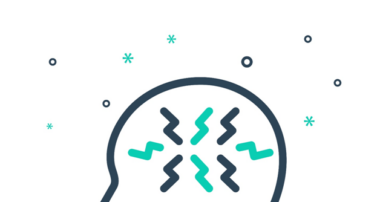In light of March being National Nutritional Awareness Month, it’s time to talk about a topic that’s near and dear to our hearts (and stomachs!): the importance of nutrition and meal planning when it comes to eating disorder treatment. So often, eating disorder treatment discussions focus on cognitive retraining, medical care, therapy techniques, and the like. This is well and good; after all eating disorders usually aren’t about food or weight at their cores, but instead about gaining control and responding to trauma and stress. However, a solid foundation in nutritional awareness is absolutely vital to eating disorder recovery in the short and long terms.
Any eating disorder treatment center worth its salt (pun very much intended) will have a comprehensive approach to food and nutrition. It’s every bit as important as psychotherapy and psychiatric care – especially after a patient graduates from regular treatment, the lessons about nutrition that are imparted in-house will continue to be useful for years to come. So what roles do nutritional training and meal planning exercises play in recovery? Let’s find out.
Nutrition at the Beginning of Treatment
Many, but not all, people who admit to an eating disorder treatment facility are suffering from nutritional imbalances or malnutrition due to their disordered eating patterns. In these situations, along with any medical needs being addressed, a team of nutritionists and dieticians will work closely with the patient and medical team to restore healthy nutrition to their clients.
As an example, a person with anorexia nervosa who is extremely underweight might be assigned a meal plan focused on weight restoration as well as increasing the levels of iron and other essential nutrients which have dipped below optimal levels. A person with ARFID who is not underweight, on the other hand, might receive a nutritional plan that aims to restore the nutrients contained in the foods they compulsively avoided.
These are just examples. At an eating disorder treatment facility with a modern treatment philosophy, each patient will receive their own specialized nutritional programming plan. Beginnings are crucial times for any undertaking; residential eating disorder treatment is no different. With a solid plan at the start, patients can count on restoring nutritional balance and start to work on addressing the behaviors themselves as well as their underlying causes.
Nutrition and Meal Planning Designed to Address Medical Complications of Eating Disorders
After the immediate medical needs of patients have been addressed, there are often long-term medical issues that remain. Most, if not all, can be corrected through long-term nutritional planning. Each type of disorder can bring serious medical complications, and people who have had more than one disorder (more common than most people think!) might suffer from several of them.
Some of the medical complications that might result from an extended bout of disordered eating include:
- Constipation
- Diarrhea
- Irritable bowel syndrome
- Electrolyte imbalances
- Anemia
- Acid reflux
- Heartburn
- Cardiac abnormalities
- Amenorrhea (stoppage of menstruation)
- Dental sensitivities (most often with bulimia nervosa)
- Osteoporosis
- Hypoglycemia
- Ketosis (a disorder arising from lack of carbohydrates to provide fuel for the body’s cells)
These are often associated with restrictive and purging-type disorders like anorexia nervosa and bulimia nervosa, respectively, although they can come with any eating disorder that disrupts nutrition. Binge eating disorder can carry some unique complications of its own, largely due to the fact the caloric intake is not restricted or purged with this disorder. They might include:
- Dumping syndrome (in which the body processes food far too quickly)
- Texture tolerances
- Quantity tolerance
Finally, there is a specific type of eating disorder that can be especially dangerous. It affects both nutritional imbalances and the ever-important balance of blood sugar. This condition is known as diabulimia, and it’s extremely dangerous. People with diabulimia have type-1 diabetes (the kind that is present from birth) and require regular insulin shots to keep their blood sugar levels balanced. Their disordered behavior involves skipping insulin shots in an attempt to lose weight. This disorder is extraordinarily dangerous, even by eating disorder standards. It requires careful psychotherapy and nutritional planning to overcome.
The point of nutritional programming at an eating disorder treatment center is always to counteract these kinds of health complications. Since each person’s disorder is different in its specifics, each person in treatment will receive a unique meal plan, designed with care by the medical team and the nutritionists and dieticians available to the patient.
Nutrition and Meal Planning Are More Than Counteracting Health Risks
Now that we’ve discussed the difficulties that imbalanced nutrition can bring, it’s time to move on to the much more positive and fun aspects of nutritional programming and meal planning. For people still in the throes of an eating disorder, mealtimes and eating with other people can be ordeals. In the latter stages of eating disorder treatment, patients and nutritionists begin to work on replacing the fear and trepidation that stemmed from planning and eating meals with a sense of nourishment, satiety, and pleasure.
The first step in this goal is to address disordered thoughts and attitudes about food and eating. Most patients will undergo talk therapy, group therapy, and evidence-based treatments like Cognitive Behavioral Therapy (CBT) to help replace unhealthy ideas about body image, weight restriction, and other common disordered patterns with more constructive ones. Nutritionists at the center will often also teach about the science behind nutrition, focusing on how proper nutrition allows the body and mind to operate at top efficiency, helping to dispel flawed self-perception and cognitive function.
With these lessons in mind, patients generally begin to plan their meals and snacks by themselves (with assistance from the treatment team, of course). Food and eating are such a central part of the human experience, not simply because we need to eat in order to live, but because of the positive emotions they can generate. The goal of self-planned meals and snacks is to instill in eating disorder patients a positive association with eating, replacing the feelings of guilt many people with eating disorders feel.
Certain kinds of “exposure therapy” are also introduced during this time. In mental health treatment terms, “exposure therapy” is a type of treatment where a person faces their irrational fears n a controlled setting until they can be overcome. For example, a person with arachnophobia might, over time, look at, touch, and then pick up a harmless spider until they see the fear is unwarranted.
In an eating disorder treatment sense, this “exposure therapy” usually consists of reintroducing the patient to normal mealtime settings and other activities associated with food. A common example is sending a group of patients to have a meal at a restaurant or food truck – eating in public is frequently unpleasant r impossible for a person with an eating disorder. These kinds of activities are especially useful in maintaining recovery after treatment has ended. They’re the kind of activities that eating disorders remove the pleasure from, and a recovered person will often want to reclaim lost time when it comes to the emotional, physical, and social pleasure of eating with good friends and good food.
Nutritional Awareness Is Important for Everyone
For this National Nutrition Awareness Month, take the time to focus on yourself and your relationship with food and eating. If you’re struggling with an eating disorder, remember the lessons you’ve learned in treatment about how proper nutrition improves the way you feel and operate – and don’t get discouraged if you’re still struggling. Every little victory over an eating disorder is a big victory overall, and a setback is just that – a setback.
Take the time to plan a fun little snack if you’re not up to a full meal. And for those friends and family helping provide support to a loved one with an eating disorder – you can enjoy the benefits of nutritional awareness and meal planning too! Make a date to visit that little tapas shop or Korean barbeque together – or whatever food you enjoy and makes you happy – or take the time to go shopping together. When it comes to nutrition and eating disorders, every little bit helps.












